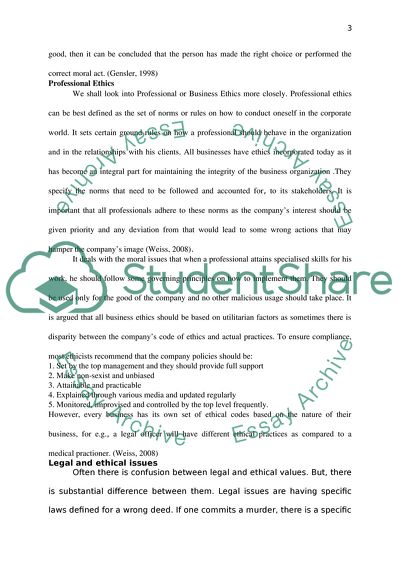Cite this document
(Professional Ethics Case Study Example | Topics and Well Written Essays - 2250 words, n.d.)
Professional Ethics Case Study Example | Topics and Well Written Essays - 2250 words. Retrieved from https://studentshare.org/ethics/1749238-professional-ethics-paper
Professional Ethics Case Study Example | Topics and Well Written Essays - 2250 words. Retrieved from https://studentshare.org/ethics/1749238-professional-ethics-paper
(Professional Ethics Case Study Example | Topics and Well Written Essays - 2250 Words)
Professional Ethics Case Study Example | Topics and Well Written Essays - 2250 Words. https://studentshare.org/ethics/1749238-professional-ethics-paper.
Professional Ethics Case Study Example | Topics and Well Written Essays - 2250 Words. https://studentshare.org/ethics/1749238-professional-ethics-paper.
“Professional Ethics Case Study Example | Topics and Well Written Essays - 2250 Words”. https://studentshare.org/ethics/1749238-professional-ethics-paper.


